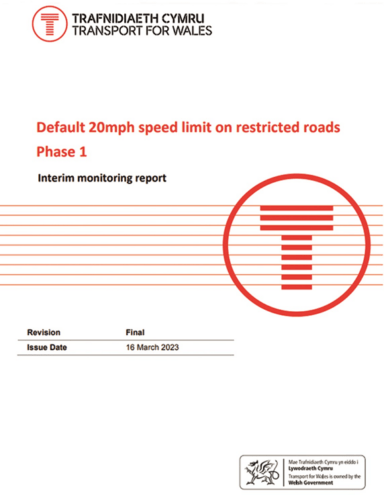
Writing for Nation.cymru, Professor Stuart Cole, CBE, Emeritus Professor of Transport Economics and Policy, University of South Wales, says the new default 20mph speed limit which comes into force on 17 September, replacing the current 30mph limit, will mean significant cost implications for operators through increased drivers’ hours and less efficient vehicle operation, “in much the same way as traffic ‘humps’ on bus routes cause increased wear to vehicle suspension and fuel consumption with consequent increases in cost.”
“Bus passengers, will have to face longer journey times on urban routes,” he points out, and at a time when resources are already scarce, “companies will require additional vehicles and driver shifts if the current bus service frequency is to be maintained. Increased drivers’ hourly rates, currently under negotiation with the trade unions, will also increase costs.”
Professor Cole notes that the alternative would be to introduce, at the same time as the new speed limit, a raft of bus priority schemes on all routes where other traffic congestion adversely affects their operating timetable, as one of the objectives of the new limit is to make car journey times less attractive than buses; separating buses from cars could achieve this, he says, allowing operators to maintain similar overall running times, otherwise buses will just be part of the same, but slower moving traffic.
“Major cross-town or inter-town routes are often the flagships of bus companies being the most profitable and forming a significant part of their core network. A service currently operating a 15-minute frequency would reduce to every 20 or 30 minutes with additional journey time (from the 20mph limit), reducing passenger numbers,” he adds.
The Professor goes on to make a dubious claim that “the modern urban bus is designed to travel in a certain gear up to 30mph, and a higher gear at 40mph. It is not designed to travel at 20mph and frustrated drivers will have to override the automatic gearing system installed in all buses. It is a valuable safety system in buses which enables the driver to concentrate on passengers and the road ahead. So one might say that adversely affecting the bus’ inbuilt safety system will detract from the safety objectives of the speed limit. It will also cause extra gearbox maintenance costs.”
However, he concludes that the Welsh Government’s objectives are appropriate but it would have been better advised to initiate the scheme in big urban areas (Swansea, Cardiff/Newport and the Valleys) where the greatest number of road casualties and deaths occur; introduce bus priority measures to accompany the scheme; and delay the scheme’s introduction until the bus industry’s current challenges are solved and revenue support funding is available.

